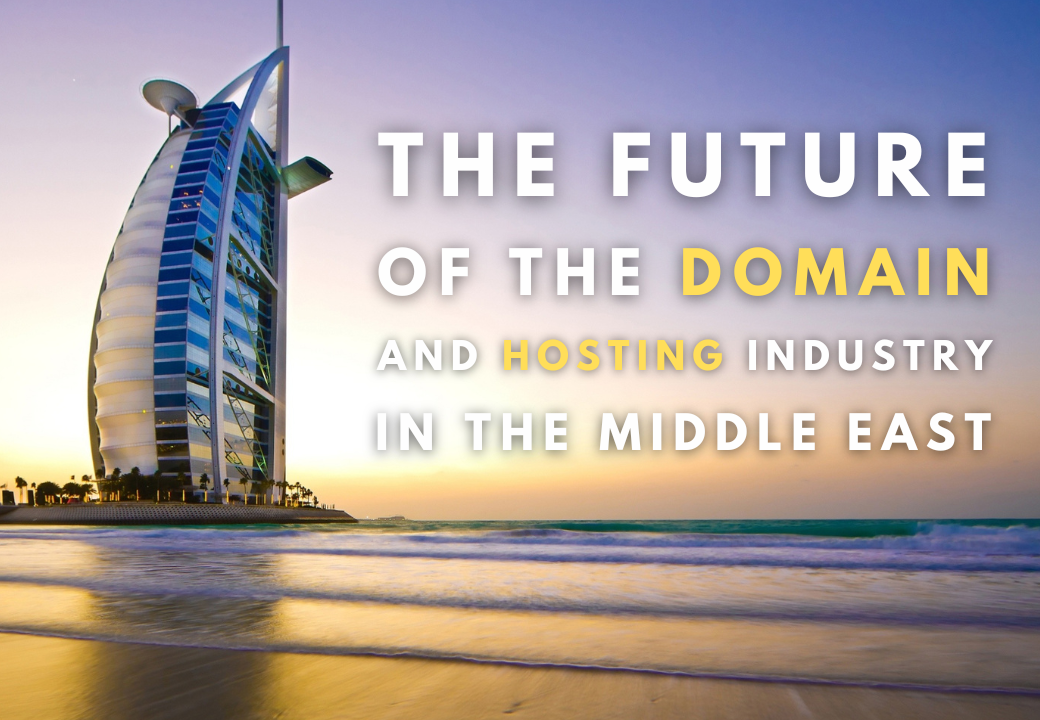This article is based on the Konrad’s Corner Podcast featuring Munir Badr, the founder and CEO of AEServer. In the podcast, Munir shares his insights about the domain and hosting industry in the Middle East, highlighting current trends, consumer behavior changes, and future challenges facing local companies.
Current trends in the industry
The domain and hosting industry in the Middle East is experiencing significant growth. Munir points out that “we are serving 30,000 clients” and “we pride ourselves on being one of the top providers in the region.” This growth is driven by several key trends.
One of the main trends is the increased demand for local services. More businesses in the region prefer local hosting providers for data security and support. As Munir states, “so yeah, we do local hosting that was one of our main advantages. If you say why would I buy from a server why not just buy from provider X in the US – well you know people want local support they want sometimes they want their data to be within the country. So they’ve been different trends in the market and people would follow them but I always wanted to be unique and offer something unique. I think in 2015 or 14 we launched our first server here in Dubai and we did local hosting” This trend highlights the importance of having a local presence in a global market.
Another noticeable trend is the shift towards country code top-level domains (ccTLDs). Local businesses are recognizing that “a local domain name like a ccTLD can rank higher in Google.” This trend reflects a growing understanding of the benefits of local visibility in online searches.
Additionally, the rise of e-commerce in the region is significantly impacting the hosting industry. Munir notes that “the e-commerce penetration was very low” in the past, but the landscape has changed dramatically. More companies are now seeking reliable hosting services to support their online stores.
Changes in consumer behavior
Consumer behavior is evolving alongside these trends. Customers are increasingly looking for transparency and quality service. Munir emphasizes the importance of “honesty, transparency, and just working your way up” in building customer relationships. As businesses compete for attention, providing excellent customer service becomes crucial.
Moreover, the Middle Eastern market has a unique culture that affects how businesses operate. Munir explains that before doing business, highlighting the significance of personal relationships in the region: “Absolutely ,so yeah things are definitely different in the Middle East and you got to live here for many years. Uh to understand it be it the language be it you know the cultural aspect or the way you know you would deal the hospitality the service, um yeah so one of the things I mentioned was about this the culture of trust especially online – when you don’t see the person you don’t shake hand with the person physically then there is no trust, so people would really demand a meeting.”. This cultural aspect presents both an opportunity and a challenge for companies trying to establish themselves.
Future challenges for local companies
Despite the positive trends, local companies face several challenges. As the market grows, competition increases. Munir acknowledges that “I welcome more competition for AEServer” because it pushes companies to improve their services. However, this also means that companies need to differentiate themselves to attract and retain customers.
Keeping up with rapid technological changes is also essential. Companies must invest in the latest technologies to stay relevant. Munir mentions that “technology came very early into Dubai” and that businesses need to adapt quickly to meet consumer expectations.
Lastly, the regulatory environment can be challenging for local businesses. As Munir describes, “Anyway here’s my address delivered to me like bundle it was like a brochure and inside it it said you’re invited to a public consultation session to the relaunch of theae namespace, because there’s like a reform happening in the country. Basically there’s the new Ministry of Communications is called Telecommunications Regulatory Authority – now it’s called TDRA Telecommunications and Digital Government Regulatory Authority. So this was a new Government Federal body which was formed and and then they basically split the domain names from the ISP, because there was a new ISP coming into town and then they basically took over the domain names they transferred all the domain names and they wanted to invite all the parties who were related to the space” that changed the way domain registrations were handled. Companies must navigate these changes to remain compliant while continuing to serve their clients effectively.
The future of the domain and hosting industry in the Middle East looks promising, but it is not without its challenges. As Munir Badr highlighted, understanding local needs, maintaining high service standards, and embracing technological advancements are critical for success. The region’s unique culture and growing demand for local services present opportunities for companies willing to adapt.
In my opinion, the key to thriving in this evolving market is a focus on building strong relationships and continuously improving services. The insights shared by Munir in the podcast provide valuable guidance for anyone looking to understand the dynamics of the domain and hosting industry in the Middle East.
For more insights, listen to the full podcast here:
Kamil Kołosowski
Author of this post.
